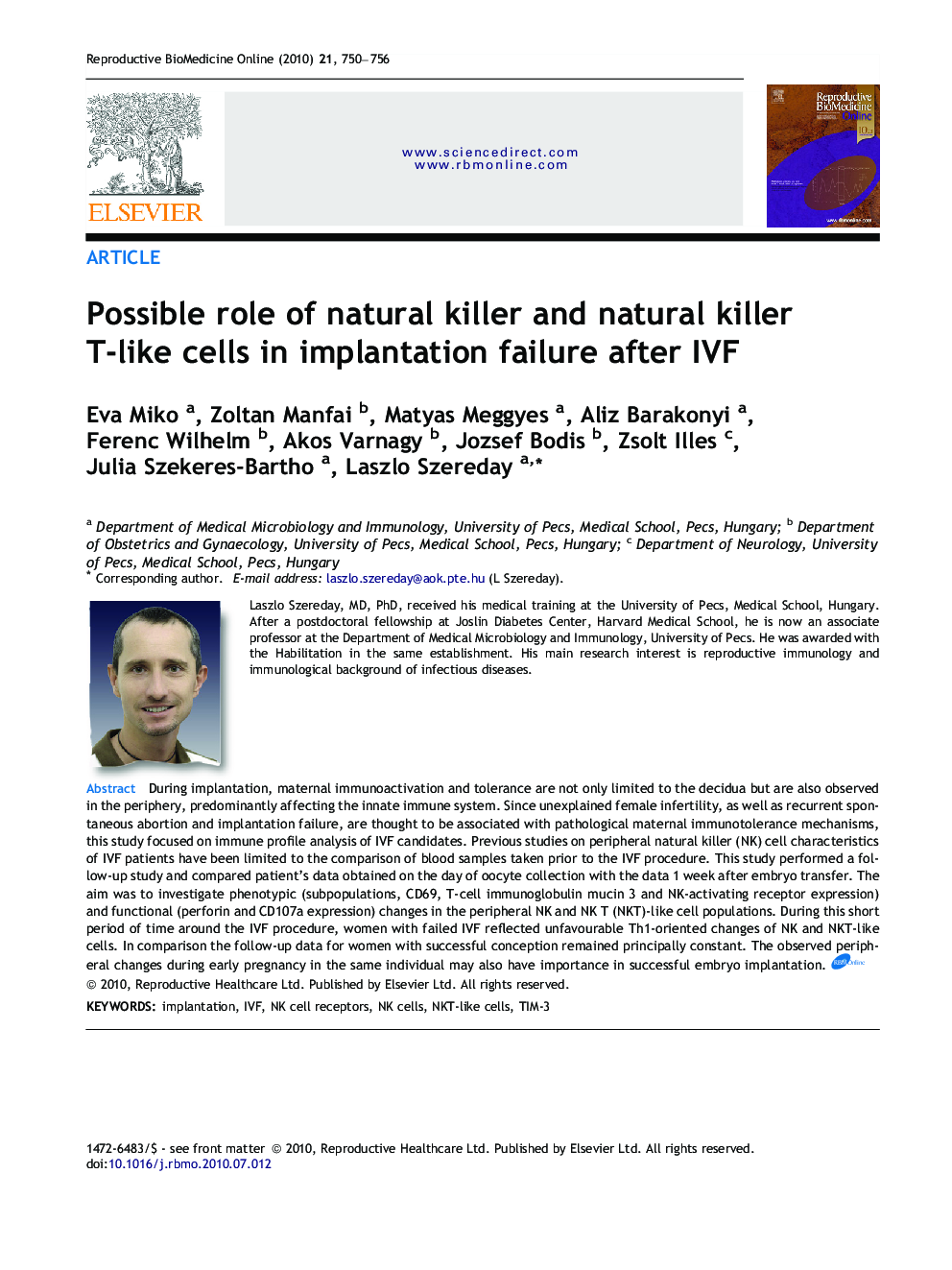| Article ID | Journal | Published Year | Pages | File Type |
|---|---|---|---|---|
| 3971207 | Reproductive BioMedicine Online | 2010 | 7 Pages |
During implantation, maternal immunoactivation and tolerance are not only limited to the decidua but are also observed in the periphery, predominantly affecting the innate immune system. Since unexplained female infertility, as well as recurrent spontaneous abortion and implantation failure, are thought to be associated with pathological maternal immunotolerance mechanisms, this study focused on immune profile analysis of IVF candidates. Previous studies on peripheral natural killer (NK) cell characteristics of IVF patients have been limited to the comparison of blood samples taken prior to the IVF procedure. This study performed a follow-up study and compared patient’s data obtained on the day of oocyte collection with the data 1 week after embryo transfer. The aim was to investigate phenotypic (subpopulations, CD69, T-cell immunoglobulin mucin 3 and NK-activating receptor expression) and functional (perforin and CD107a expression) changes in the peripheral NK and NK T (NKT)-like cell populations. During this short period of time around the IVF procedure, women with failed IVF reflected unfavourable Th1-oriented changes of NK and NKT-like cells. In comparison the follow-up data for women with successful conception remained principally constant. The observed peripheral changes during early pregnancy in the same individual may also have importance in successful embryo implantation.Pregnancy is a natural model for optimal immune tolerance mechanisms. Although the embryo (and the placenta) is partially of paternal origin, and there is ample evidence that these foreign antigens are recognized, the immune system of the mother tolerates the semiallogenic fetus. However, while creating a favourable environment for the fetus, the maternal immune system must be prepared to control possible emerging infections. Therefore, a delicate balance is established to satisfy contradictory interests of mother and fetus. Since the embryo does not come into direct contact with the maternal tissues, the placenta represents the fetal side. Maternal immunoactivation and tolerance mechanisms are not only limited to the uterus, but can also be observed systemically, in the peripheral blood. Since unexplained female infertility, as well as recurrent spontaneous abortion and implantation failure, is thought to be associated with failed maternal immunotolerance mechanisms, we focused on immune profile analysis of IVF candidates. We performed a follow-up study and compared patient’s data on the day of oocyte collection with the data 1 week after embryo transfer. During this short period of time around the IVF procedure, peripheral immune cells of the failed IVF group reflected unfavourable changes suggesting pathological immunoactivation. Comparing the follow-up data of successful IVF patients they remain principally constant. Since successful embryo implantation depends on adequate maternal immunotolerance reactions, the observed peripheral changes during early pregnancy in the same individual may reflect local processes.
